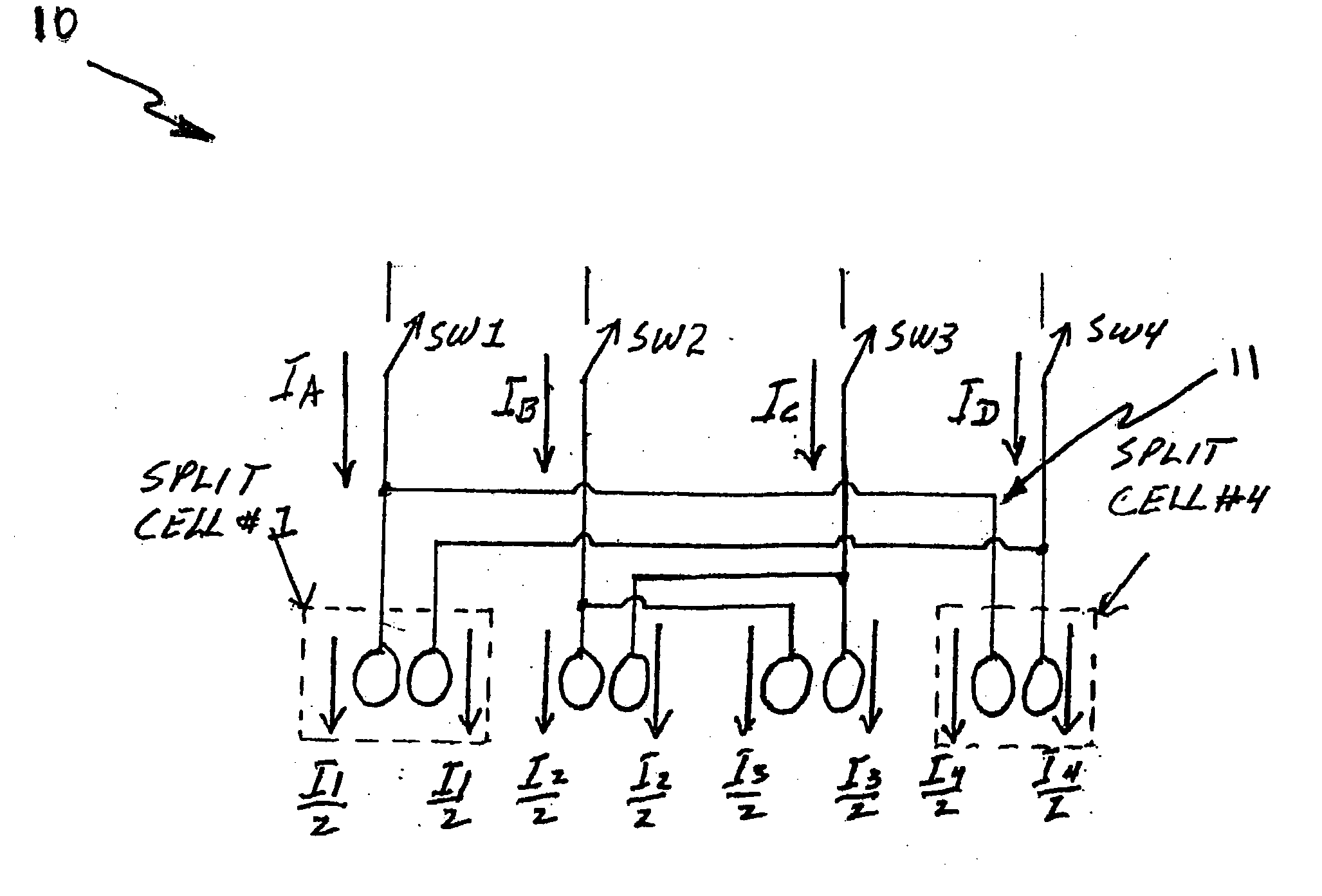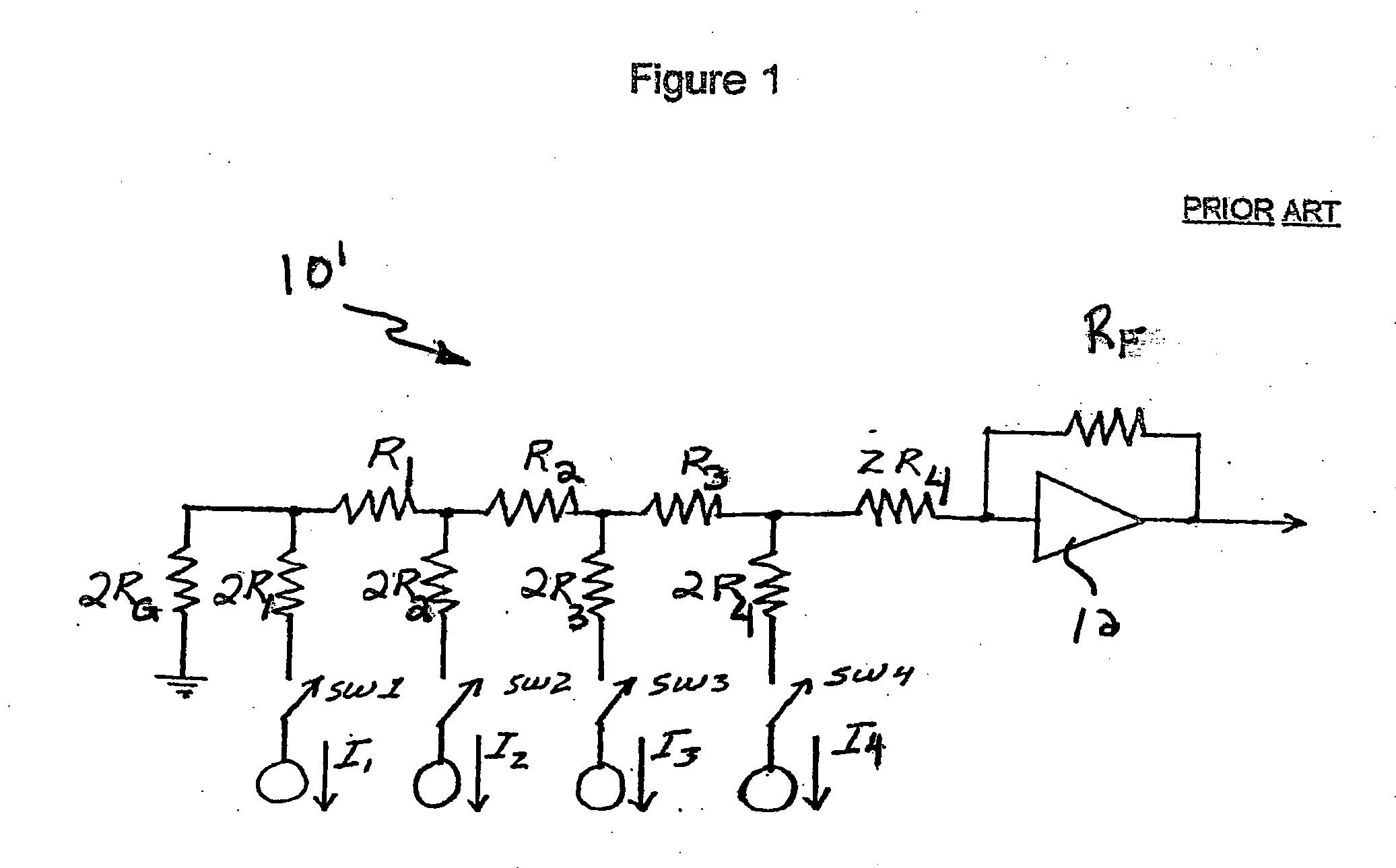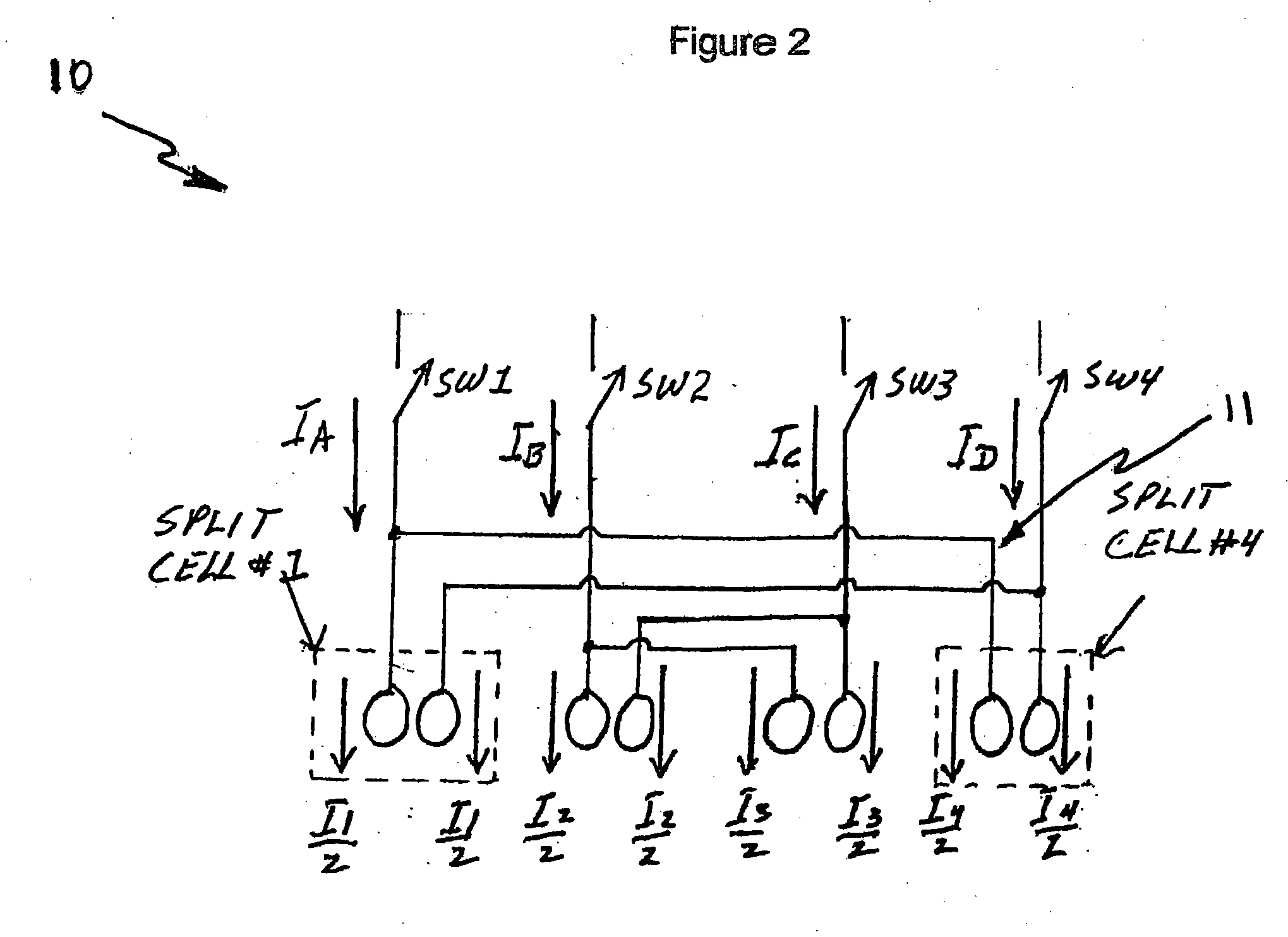Split cell bowtie digital to analog converter and method
a digital to analog converter and split cell technology, applied in the field of electric and electronic components, circuits and systems, can solve the problems of multiple current sources required by the dac, the inability to manufacture exact values of multiple current sources, and the high input capacitance of flash adcs, so as to facilitate the reduction of linear gradient dnl and inl errors
- Summary
- Abstract
- Description
- Claims
- Application Information
AI Technical Summary
Benefits of technology
Problems solved by technology
Method used
Image
Examples
Embodiment Construction
[0020] Illustrative embodiments and exemplary applications will now be described with reference to the accompanying drawings to disclose the advantageous teachings of the present invention.
[0021] While the present invention is described herein with reference to illustrative embodiments for particular applications, it should be understood that the invention is not limited thereto. Those having ordinary skill in the art and access to the teachings provided herein will recognize additional modifications, applications, and embodiments within the scope thereof and additional fields in which the present invention would be of significant utility.
[0022]FIG. 1 shows an illustrative implementation of a four bit DAC in accordance with conventional teachings. The system 10′ has an operational amplifier 12 with a feedback resistor RF. Four current sources I1-I4 are selectively connected to the amplifier 12 by switches SW1-SW4 and resistors 2R1-2R4 respectively and resistors R1-R4. Ideally, eac...
PUM
 Login to View More
Login to View More Abstract
Description
Claims
Application Information
 Login to View More
Login to View More - R&D
- Intellectual Property
- Life Sciences
- Materials
- Tech Scout
- Unparalleled Data Quality
- Higher Quality Content
- 60% Fewer Hallucinations
Browse by: Latest US Patents, China's latest patents, Technical Efficacy Thesaurus, Application Domain, Technology Topic, Popular Technical Reports.
© 2025 PatSnap. All rights reserved.Legal|Privacy policy|Modern Slavery Act Transparency Statement|Sitemap|About US| Contact US: help@patsnap.com



